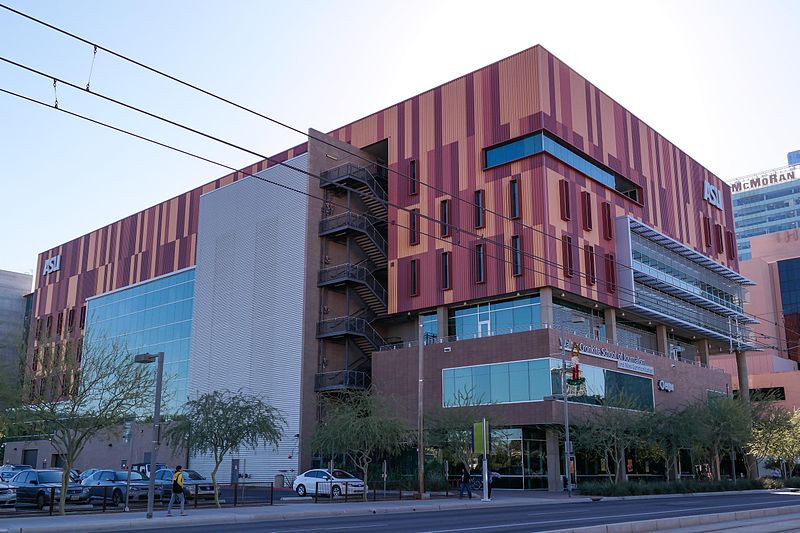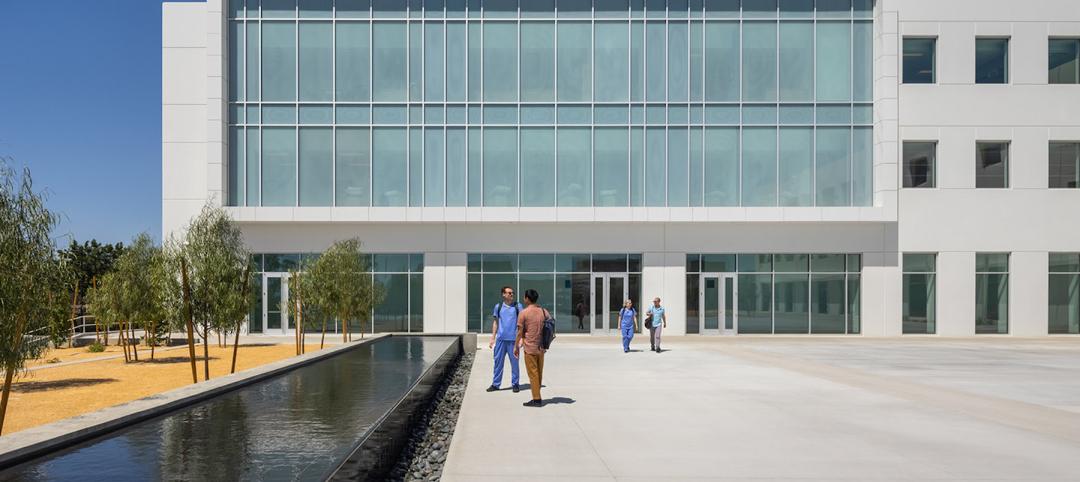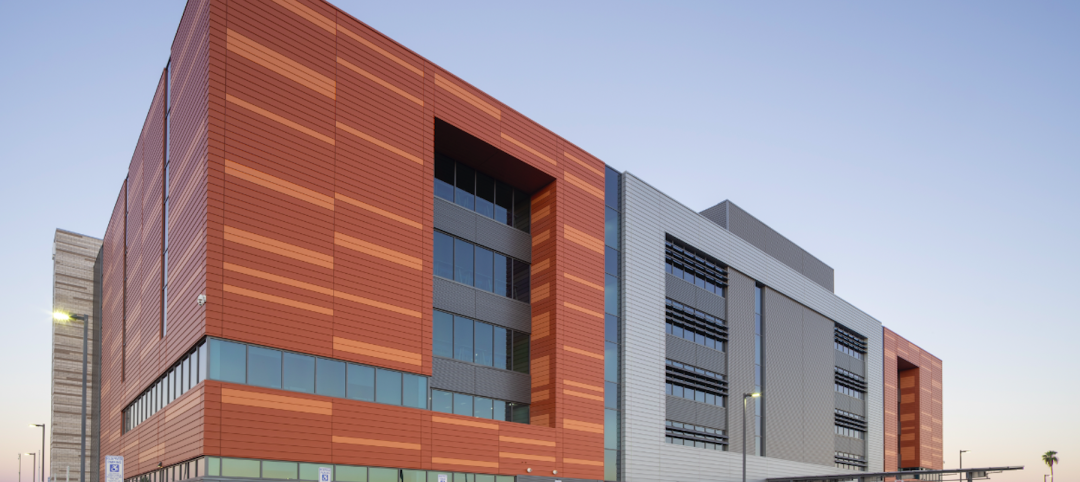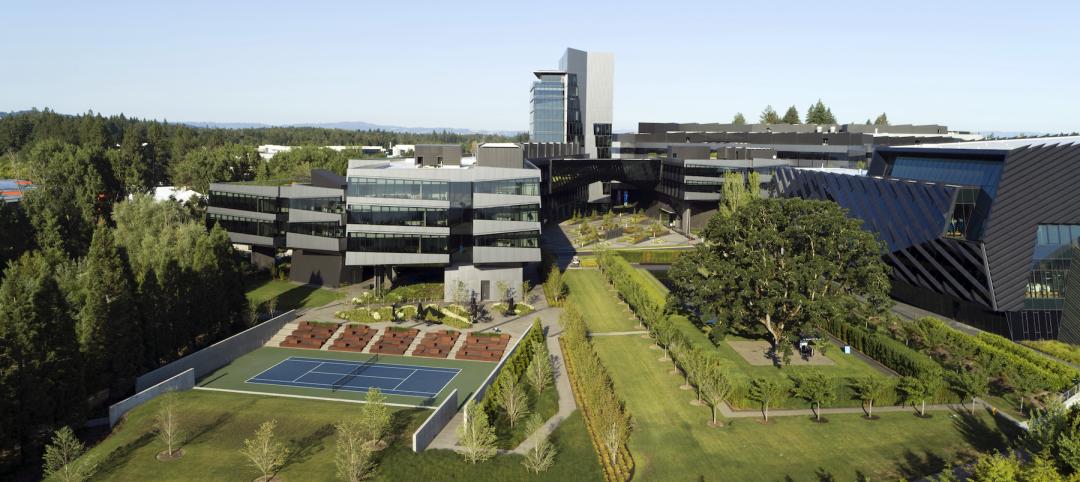The Board of Directors of the American Institute of Architects (AIA) has voted for Ehrlich Architects to receive the 2015 AIA Architecture Firm Award. The firm will be honored at the 2015 AIA National Convention in Atlanta. Ehrlich Architects is renowned for fluidly melding classic California Modernist style with multicultural and vernacular design elements by including marginalized design languages and traditions.
The AIA Architecture Firm Award, given annually, is the highest honor the AIA bestows on an architecture firm and recognizes a practice that consistently has produced distinguished architecture for at least 10 years.
The work of Ehrlich Architects covers a wide variety of program types (residential, commercial, institutional, educational) and uses a much richer palette of materials and textures than the typical California Modernist-influenced firm. However, they are most distinguished by the subtle and complex way they blend Modernist and multicultural design elements.
Before founding his Los Angeles-based firm in 1979, Steven Ehrlich, FAIA, spent time working with the Peace Corps in Africa. There Ehrlich gained an appreciation for simple, natural materials and vernacular solutions to energy, sustainability, and building performance challenges. Back in Southern California, Ehrlich found opportunities to renovate properties designed by architects high up in the California Modernist canon (like Richard Neutra, FAIA), which helped him to develop a confident, loose-limbed, but still traditional Modernist aesthetic. But his experiences in Africa, with building traditions created years before Modernism demanded a total rupture with the past, pushed him to develop an architecture that was more inclusive, responsible, and responsive than pure Modernism.
Ehrlich Architects is led by four diverse partners whose personal backgrounds and experiences result in a unique cultural sensitivity and a commitment to creating architecture that is globally relevant. They are: Steven Ehrlich, FAIA; Takashi Yanai, AIA; Patricia Rhee, AIA; and Mathew Chaney, AIA.
To fulfill these goals, Ehrlich Architects see themselves as “architectural anthropologists”—exploring ancient, developing-world building traditions and situating them in contemporary buildings to solve contemporary problems. Japanese-style courtyards, Middle Eastern lattice screens, and vernacular mud construction have all been ways they enrich contemporary architecture with age-old multicultural building elements.
“The marriage of the particular with the universal is one of the great virtues of the firm’s design approach, where connections between culture, climate, people and place are woven together in a distinct humanistic architecture shaped by circumstance,” wrote Steve Dumez, FAIA in a letter of recommendation.
A few of their most notable projects include:
- The Ahmadu Bello University Theater in Zaria, Nigeria. One of Ehrlich’s most vernacular and sustainable buildings, this 500-seat venue is composed of a ring of mud-walled pavilions, decorated with traditional bas-relief ornamentation. Local craftsmen helped with its construction, and it can be arranged in both proscenium and theater-in-the-round configurations.
- The Federal National Council Parliament Building Complex in Abu Dhabi, UAE. A symbol for a burgeoning democracy in the Middle East, it melds familiar Arabic design language with contemporary form and the latest technological advances to create meaning, maximum functionality and environmental sustainability.
- The 700 Palms Residence in Los Angeles, which uses Corten steel, copper, and stucco to create a strong, rugged approach to California Modernism, dissolving barriers between indoors and outdoors with glass, alternately boxy and brawny, light and open.
- Arizona State University’s Walter Cronkite School of Journalism and Mass Communication, Phoenix, Ariz. As the firm’s first design-build project, utilizing BIM, fast track, and integrated project delivery, the building delivered great value to the public in less than two years and was a harbinger of downtown Phoenix’s energetic redevelopment.
- The John Roll U.S. Courthouse in Yuma, Ariz., takes the symmetrical massing of a typical 19th-century courthouse and reinterprets it into a Modernist desert sandstone box, adding generous public space with a massive canopy-shaded “front porch” composed of photovoltaic panels.
Ehrlich Architects is the 52nd AIA Architecture Firm Award recipient. Previous recipients of the AIA Firm Award include, Eskew + Dumez + Ripple (2013), VJAA (2012), BNIM (2011), Pugh + Scarpa (2010), Kieran Timberlake (2008), Muphy/Jahn (2005), Polshek Partnership (1992), Venturi, Raunch, and Scott Brown (1985), I.M. Pei and Partners (1968), and SOM (1962).
Related Stories
Codes and Standards | Aug 3, 2022
Some climate models underestimate risk of future floods
Commonly used climate models may be significantly underestimating the risk of floods this century, according to a new study by Yale researchers.
| Aug 3, 2022
Designing learning environments to support the future of equitable health care
While the shortage of rural health care practitioners was a concern before the COVID-19 pandemic, the public health crisis has highlighted the importance of health equity in the United States and the desperate need for practitioners help meet the needs of patients in vulnerable rural communities.
Reconstruction & Renovation | Aug 3, 2022
Chicago proposes three options for Soldier Field renovation including domed stadium
The City of Chicago recently announced design concepts for renovations to Soldier Field, the home of the NFL’s Chicago Bears.
Codes and Standards | Aug 2, 2022
New tools help LEED projects reach health goals
The U.S. Green Building Council now offers tools to support the LEED Integrative Process for Health Promotion (IPHP) pilot credit.
Market Data | Aug 2, 2022
Nonresidential construction spending falls 0.5% in June, says ABC
National nonresidential construction spending was down by 0.5% in June, according to an Associated Builders and Contractors analysis of data published today by the U.S. Census Bureau.
K-12 Schools | Aug 1, 2022
Achieving a net-zero K-12 facility is a team effort
Designing a net-zero energy building is always a challenge, but renovating an existing school and applying for grants to make the project happen is another challenge entirely.
Healthcare Facilities | Aug 1, 2022
New Phoenix VA outpatient clinic is one of the largest veteran care facilities in the U.S.
The new Phoenix 32nd Street VA Clinic, spanning roughly 275,000 sf over 15 acres, is one of the largest veteran care facilities in the U.S.
Codes and Standards | Jul 29, 2022
Few projects and properties are being built beyond code
Clients and architects disagree on how well building to code provides resilience, according to a recent report by the American Institute of Architects (AIA) in partnership with Owens Corning.
Headquarters | Jul 29, 2022
Nike HQ’s newest, largest structure: the Serena Williams Building
In Beaverton, Ore., the new Serena Williams Building, at just over 1 million square feet, is the largest structure at Nike World Headquarters.
| Jul 28, 2022
Fanning Howey hires Dennis Bane, AIA, as Project Executive
Fanning Howey, an architecture, interiors and engineering firm specializing in learning environments, has hired Dennis Bane, AIA, ALEP, to serve as a Project Executive for the firm’s Indianapolis office.

















